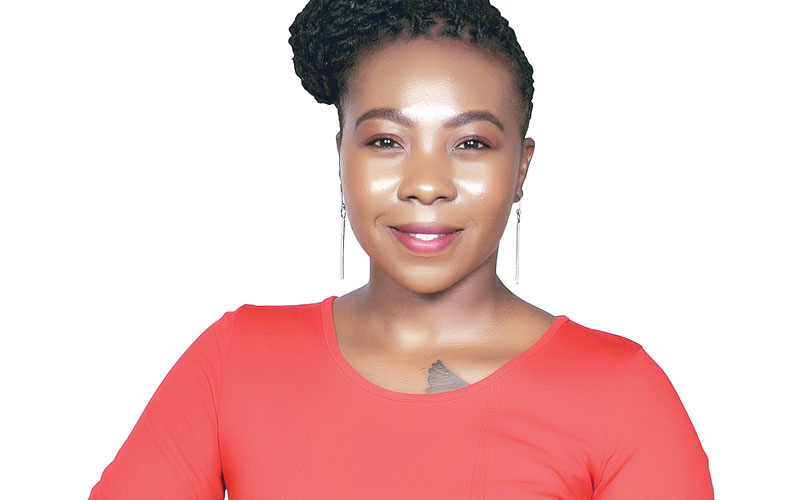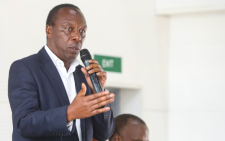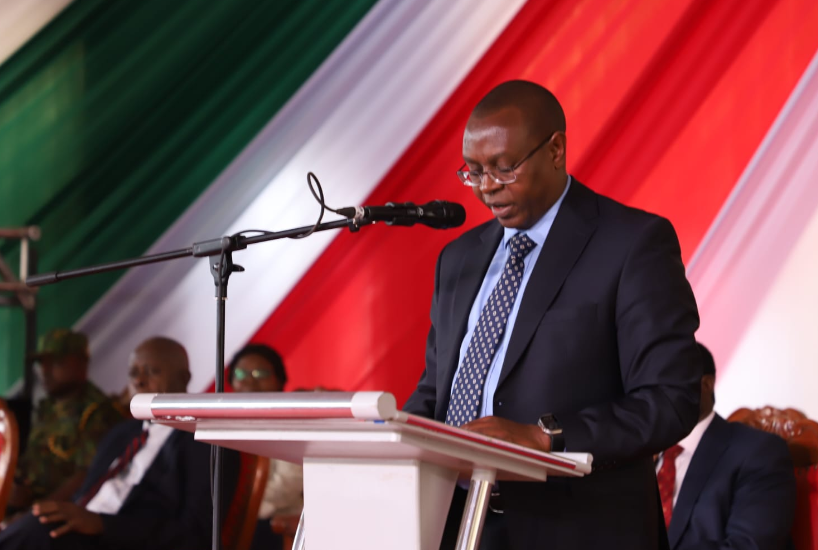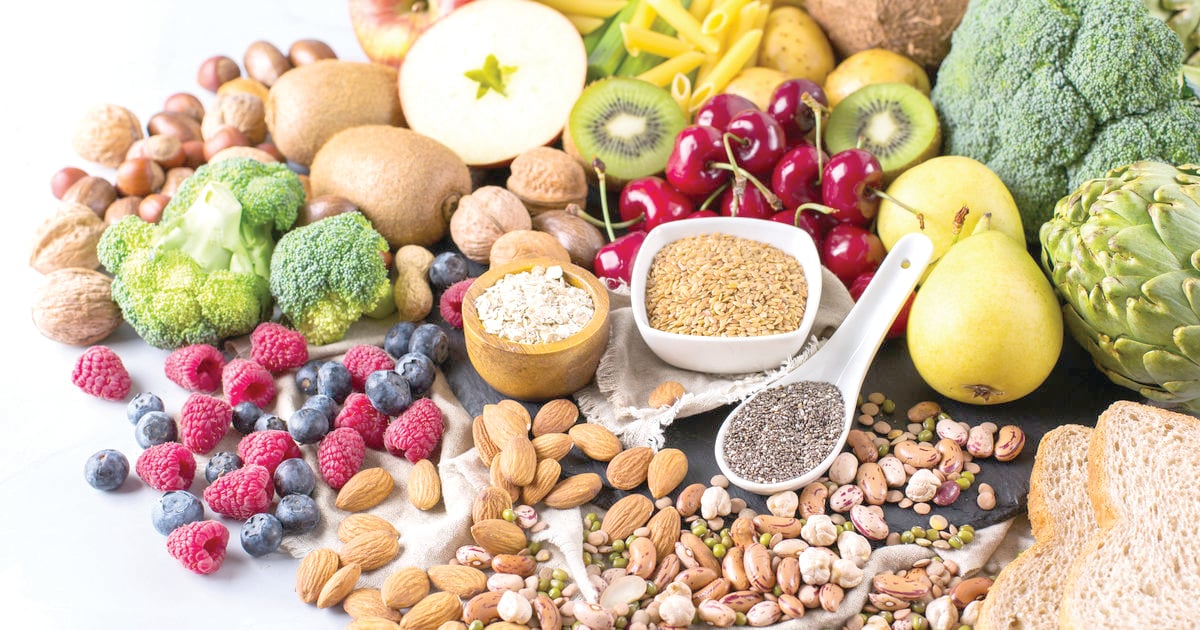Mission to give a leg up for start-up companies

KITAWA WEMO learnt that not every entreprenuer needs funding, others need an opportunity to monetise their business ideas. She decided to provide them that chance…
When Kitawa Wemo interned in Kajiado as a student and discovered how women were excluded from making decisions, she decided to start an initiative to bridge the gap.
“I started Mama Ventures in 2016. I couldn’t just comfortably sit around enjoying my salary as an intern. To learn the workings of the industry, I volunteered with two start-ups in Nairobi. Then I decided to design an entrepreneurship toolkit, which I could tailor for communities because that’s where my base is,” she says.
Mama Ventures, which started as a community outfit, is an impact-based initiative in which Kitawa, 28, helps start-ups see their ideas to fruition.This desire would later materialise into three projects: working a tree-planting initiative with pupils at Juja, making hand sanitisers with women in Kibra and making beads out of recycled bottle tops with girls in Ngong.
Kitawa, an environmental health graduate from Kenyatta University (KU), made her first biggest mistake during the initial project in which she was dealing with 12 pupils from Juja. “I took up my first project from 2016 to 2017, and I just started lecturing the pupils. But I noticed they never understood what entrepreneurship was. Then I took a step back and decided to learn from the children. After settling on what they would have loved to learn, we had a very successful tree-planting project, through which they managed to raise money to buy their own stationary and sanitary towels. Because they were actually the curators, the project was a much bigger success. That I was just a means made me so happy,” she says.
Grassroot interventions
Towards the end of 2017 to 2018, Kitawa decided to do a project in KIbera since she lives near there. She thought things would be easy. But after consulting a community worker, she was advised to first take a walk through Kibera to make her understand the area’s problems, before thinking of an intervention. “We did the walk in two days. It was during the rainy season and I had the wrong shoes on, but the social worker encouraged me. On the third day, I realised I wanted to work with 12 women in different groups to make hand sanitisers for their children.”
In the process, one of the women started a daycare informed by frequent fire outbreaks, which proved risky as many mothers left their children at home. Through her initiative, she saw a problem and came up with a solution.
With the help of an organisation in Ngong, Kitawa did her final community project in 2018, in which 12 girls made beads out of recycled bottle tops. This project came at the a time the government enforced the plastic ban. “Despite the good progress of the project, I had a moral-ethical issue – in which, being a not-for profit venture, I didn’t know how to make money. I designed a model where 80 per cent sales of the beads went to the girls, and 20 per cent to my venture.”
Kitawa decided make community projects part time and side line them as her impact. She transitioned to an impact venture builder, which basically involves helping organisations make money off their ideas. “I believe impact is the engine that drives your business. I also changed because I discovered we have so many wonderful initiatives that don’t get to the market,” she says.
Kitawa adds: “At some point, we started realising that not all businesses need money. They just need the right channel to make the money themselves. And the ones who need money, we get them in touch with investors for ethical money: money whose source I know, and also money which doesn’t kill their businesses.”
Kitawa blames poor division of opportunities on patriarchy. “Even in start-ups, I feel that women need to believe in themselves some more, that they can actually build good businesses. As a woman, now is the perfect time to build a business because the world is rooting for me. That’s why most of our projects are targeted towards women. Of course, we have men in our radar. I think women know they’re good, but they just need to learn from the risks us fellow ladies have taken.”
Culture connect
Having so far built over 200 businesses for women and men, Kitawa says she doesn’t consciously profile gender. She is of the opinion that, at the end of the day, discussing gender is about realising men and women function differently. “The most important thing is to strike a balance. All my consultants are men. If I need things to be done faster and more efficiently, I will go for a man. But whenever I need a project to be done over time, I go for a woman. Men are my touch-and-go people, while women are my relationship people,” she adds.
The biggest lesson she has learnt is that you don’t always have to win. She believes failure teaches her to succeed better. “I think every day is a lesson. Discipline and consistency always bear fruit. I have also learnt to be open to learning from my own mistakes and those of other people.”
In her three years of entrepreneurship, Kitawa’s biggest challenge happened when she was starting out. It was trying to defy odds and fitting in a box as a young and educated and a traditionally unemployed woman. “Sometimes this challenge slows me down for I have to prove myself as a young African woman. I have also been almost conned and ran into legal issues,” she explains.
Kitawa believes competition is healthy, because it allows her to progress faster. She sees it as an opportunity to collaborate with other initiatives. “ To deal with competition, I try to understand and work on what I’m good at. When someone with more money than I have comes, I ensure I have more data and research on the ground than they do. Then they need me to move and achieve their goals faster. And if someone comes from a different nationality, it’s important to see where both our cultures connect for us to work together. Our revenue as of last year is Sh2m. When we do our math next month, judging from things so far, we would definitely have doubled the number. Next year looks better.”
Kitawa’s challenges have come with blessings. She has been recognised a few times for her work. She has received awards from the Women Economic Front. During this interview, Kitawa got news she just won an award from the Africa’s Most Influential Women in Business and Government 2019 under busines and professional services category.
Kitawa, besides being the only full-time worker on her initiative, she has also employed five other people on a part-time basis.












